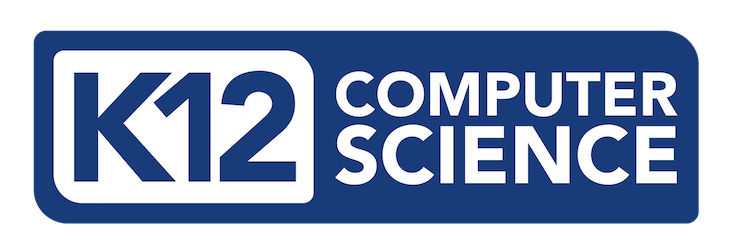The full version of this content can be found in the Implementation Guidance chapter of the complete K–12 Computer Science Framework.
 The framework’s concepts and practices help program designers and novice teachers organize and understand the breadth of knowledge in computer science. The framework was intentionally written with the understanding that it would be used by both teachers who are familiar with computer science and teachers who are new to computer science.
The framework’s concepts and practices help program designers and novice teachers organize and understand the breadth of knowledge in computer science. The framework was intentionally written with the understanding that it would be used by both teachers who are familiar with computer science and teachers who are new to computer science.
Professional Development
Although there are effective practices that apply to all professional development experiences, the following recommendations address issues particular to computer science.
Customize professional development to meet teachers’ varied backgrounds in computer science. When a workshop of teachers from the same subject background is not possible, a workshop could include sessions for teachers to break into groups based on experience or certification.
Professional development should attend to novice teachers’ anxiety over their lack of content knowledge. Professional development can instill a growth mindset in participants, in which learning builds over time, during a workshop as well as the school year while teachers deliver instruction.
Providers should connect professional development experiences to a curricular context. Professional development connected to the concepts and practices in the framework can provide opportunities to practice teaching content (i.e., microteaching) and can be contextualized to particular curricula that teachers will be using in their classrooms.
Professional development should include a focus on increasing access and equity. Computer science brings unique issues that require the emphasis of particular pedagogical practices, such as equitable practices that address the varied exposure students have in computer science and stereotypes that exist about the field (Ryoo, Goode, & Margolis, 2016). The issue of equity in computer science is addressed more fully in the Equity in Computer Science Education chapter.
Professional development should address the management of a productive computer lab environment. Teachers must learn how to manage a classroom in which the computer serves as both the primary medium for demonstrating performance as well as an occasional teaching aid.
A number of these recommendations are inspired by the suggestions in Building an Operating System for Computer Science.
Preservice Teacher Preparation
The framework can be used in a number of ways to guide teacher preparation programs as they help preservice teachers develop the content and pedagogical knowledge necessary to meet the needs of a diverse student population.
- The concepts and practices provide an organizing structure for framing preservice teachers’ content knowledge, but the depth of coursework should not be limited by the student expectations in the framework.
- The framework’s learning progressions can be used to support teachers’ development of pedagogical content knowledge because the progressions describe key conceptual milestones and show how students’ understanding can build over time.
- Teacher preparation programs should encourage preservice teachers to connect computer science to a variety of personal, practical, and social contexts.
Increasingly, teacher preparation programs at universities are creating innovative programs to expose preservice teachers to aspects of computer science so they can integrate it into their instruction or add computer science as another certification. Below are two ideas.
- Add computer science to teacher preparation programs for other subjects. Programs exist that add computer science endorsement onto a mathematics education major, resulting in dual certification. Other programs are designed for computer science and other STEM majors to obtain teaching licensure without adding more time to their undergraduate degree plans.
- Incorporate computer science content into a required course for all education majors, such as a learning theory or an educational technology course, to expose all preservice teachers to computer science (Yadav, Zhou, Mayfield, Hambrusch, & Korb, 2011).
Certification
Practical, straightforward, and clearly communicated computer science certification pathways that are also supported by teacher preparation programs are a key contributor to the sustainability of computer science implementation. Immediate and short-term solutions include
- using existing alternative CTE certification pathways,
- allowing teachers to teach computer science under a temporary license while obtaining professional education in computer science or while pursuing full certification,
- requiring computer science in existing pathways for technology education,
- creating add-on endorsements for teachers who are already certified in other content areas, and
- developing or adopting a computer science teacher licensure exam for endorsement.
In each case, the framework’s concepts and practices should be used to inform the selection or development of the coursework or examination necessary for certification, and the resources and requirements for certification should be publicly posted and readily accessible.
For policy ideas that promote and support implementation, see Making Computer Science Fundamental.
